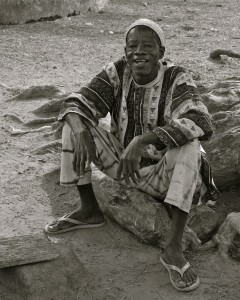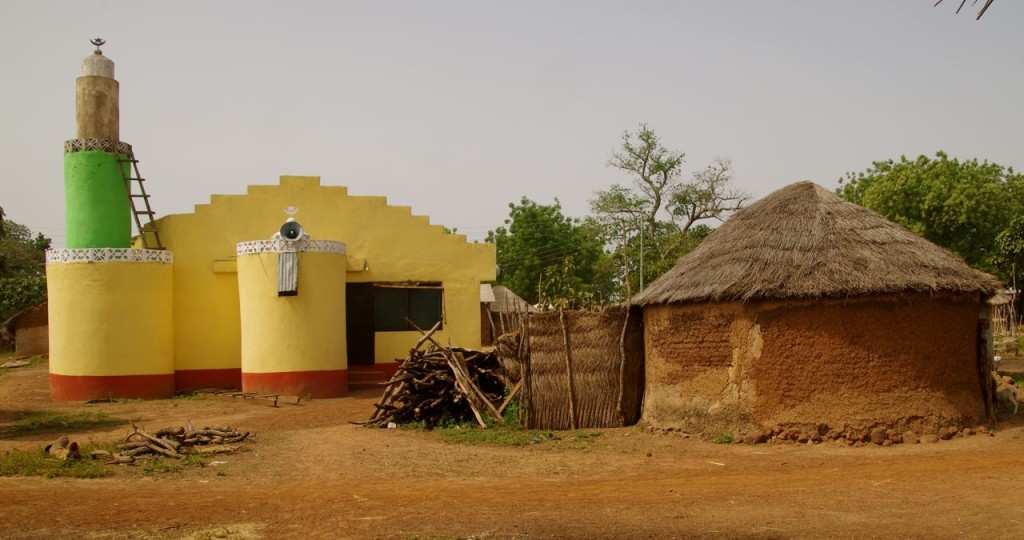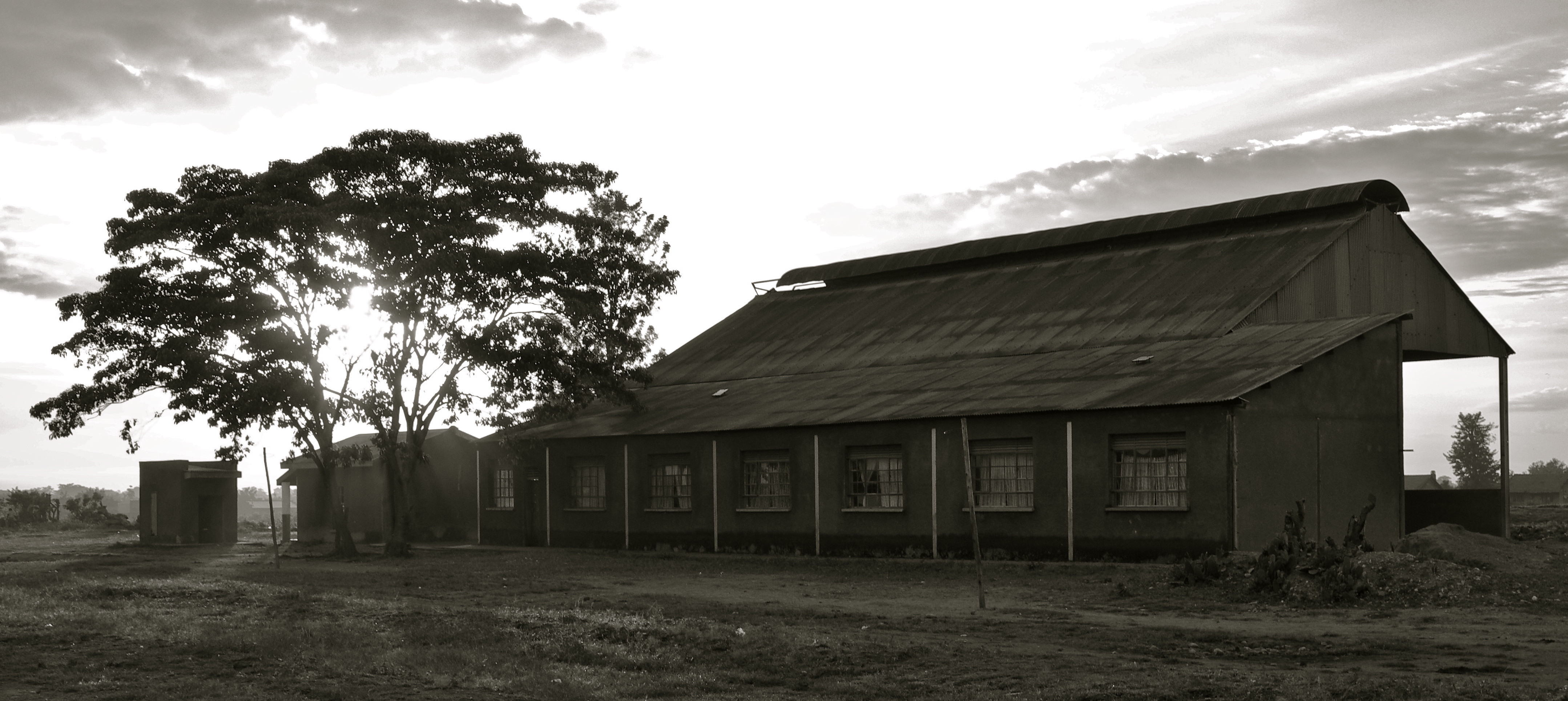Kukuo, in northern Ghana, is home to a camp for alleged witches. There women who have been accused of witchcraft come looking for safety. They come looking because if they stay home they are in danger of beatings, torture, even death. Often the women who arrive at Kukuo have already suffered at the hands of their neighbors, friends, and family. They come seeking safety and they find it.
The safety comes from the local belief in the special nature of the land. Kukuo is built on land connected to small gods that makes Kukuo a peaceful place. This was explained to us by the chief of the village during our first meeting in Kukuo. It was elaborated on when we met with the fetish priest who facilitates cleansing rituals for the alleged witches that neutralize their power. One alleged witches told us she came to Kukuo—as opposed to the another camp for alleged witches—because Kukuo is a peaceful place.
We were told that Kukuo is 80% Muslim and 20% traditional religion. But belief in witchcraft crosses the spectrum. All the women we talked to all believed in the validity of witchcraft even as they professed their innocence of practicing it. Many of them also easily talked about God—with Islamic language.

As he explained his beliefs, there are small gods and oracles. The small gods are like aspects of Almighty God and the oracles are like messengers of the small gods. The small gods are connected to the place. We had learned earlier from the chief that an important power, maybe the most important power, in respect to the alleged witches, is that the small gods will not allow malice in the hearts of anyone who comes to the camp. The chief told us that if he had had bad thoughts about us as we walked in he would not have survived our meeting. He would have died—if not physically, spiritually. And the same was true for us, if we had bad thoughts about anyone in the camp. This is part of why the women are safe there. The other residents literally cannot have bad intentions toward the alleged witches.
The resistants of Kukuo cannot harbor ill will toward the alleged witches once they step foot on the land. Once the alleged witches undergo a cleansing ritual at the local shrine they become full members of the community. The ritual begins with slaughtering a chicken—if it dies face up she is innocent, face down she is guilty. But no one but the priest and the alleged witch—and occasionally her family—know the outcome. The priest told us he cannot tell. No one can tell. If you tell you die. Just like if you have malicious thoughts. Every woman, whether she is guilty or innocent, takes a concoction. If she was a witch the concoction strips her of her powers. She is “born again.” But she must confess. If she is witch and does not admit it the concoction will cause her diarrhea and she will die within three months. If she was innocent it harmlessly cleanses her.
The priest told us that only 20% of his community are of his traditional religion. Yet, everyone believes in the purification ritual. This is not true, however. The local mullah was clear—witchcraft beliefs are not compatible with Islam. The mullah told us that he has nothing to do with the alleged witches before they complete the purification ritual. Only the chief and the fetish priest do. The mullah told us he does not believe in it. Not in the ritual, not in witchcraft, not in power coming from anyone or anything other than God. Belief in witchcraft is simply not compatible with Islam. The priest told us that traditional religion and Islam are compatible because Almighty God and Allah are really the same. Islam and traditional religion just have different ways of relating to God. The mullah disagreed. He said that all power comes from God. Witches can’t use that power. Witches don’t exist. A true Muslim does not believe in witchcraft and a true Muslim would not willingly submit to a purification ritual.
At the beginning of our visit, it seemed we had found a place where two belief systems had actually managed to live together in peace. But leaving our meeting with the mullah it became clear that it is not so simple. The mullah’s point of view is strongly opposed to the ease with with others conflate Islamic and and witchcraft beliefs. The priest happily folds Islamic belief into his world view. The alleged witches, most of whom are Islamic, still believe in validity of witchcraft. Despite the mullah’s adamant stance that no good Muslim can.

The mullah actively works to better the lives of these women. He helps make Kukuo a place safe from violence and fear. He helps them set up new lives there. And he tries, if possible, to get them safely home. So does the chief. So does the priest. We were told time and time again that it does not matter if these women ever had the power or not—it does not even matter if one believes witchcraft is real—they are victims of human rights abuses. The priest and mullah’s beliefs might be at odds, but they can live together in peace because their problems, goals, and actions are not.
